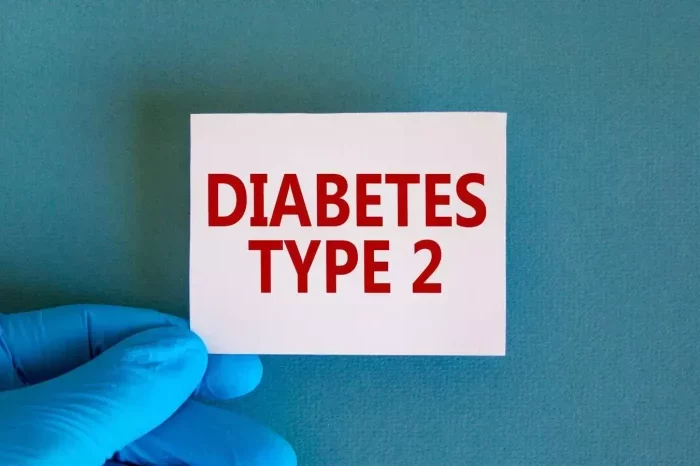As diabetes continues to impact over 324,000 New Zealanders, a new campaign aims to dispel the myths surrounding this widespread health issue. In the past three years alone, nearly 100,000 individuals have been diagnosed, with 45 new cases reported daily. Despite the alarming rise in diabetes prevalence, confusion and misinformation about the condition remain prevalent.
In recognition of Diabetes Action Month, Diabetes New Zealand has launched the “Don’t Sugar Coat Diabetes” initiative. This campaign seeks to enhance public awareness, debunk common myths, and reduce stigma while helping individuals identify their personal risk factors.
Liz Dutton, Head of Clinical Services at Diabetes NZ, emphasized the emotional toll that misconceptions can have on those living with diabetes. “These misunderstandings can lead to feelings of shame, embarrassment, frustration, or even anger. Such negative emotions can elevate blood glucose levels, directly hindering effective diabetes management,” she explained.
A recent survey revealed that nearly 75% of individuals with diabetes have encountered false claims, which often result in feelings of judgment and blame for a condition influenced by numerous factors outside their control.
Here are some prevalent myths that contribute to the stigma surrounding diabetes:
Myth 1: Consuming too much sugar causes diabetes
Dutton clarified that Type 1 diabetes is not linked to sugar intake. While a poor diet can increase the risk of developing Type 2 diabetes, the condition arises from a combination of genetic, lifestyle, and age-related factors, making it inappropriate to single out sugar as the sole culprit.
Myth 2: People with diabetes must completely avoid sugar
Contrary to popular belief, individuals with diabetes do not have to eliminate sugar entirely. For those with Type 1 diabetes, sugar can be vital for raising blood glucose levels when they drop too low, such as after excessive insulin use or missed meals. Dutton noted that even those managing Type 2 diabetes can enjoy occasional treats without compromising their health.
Myth 3: Diabetes only affects overweight or inactive individuals
Dutton stressed that Type 1 diabetes is unrelated to weight or lifestyle choices. While being overweight is a risk factor for Type 2 diabetes, it is not the only cause; genetics, age, and physical inactivity also play significant roles. Notably, approximately 20% of individuals with Type 2 diabetes are of normal weight or even underweight.
Myth 4: Diabetes primarily affects older adults
Diabetes can occur in individuals of all ages. Many fail to recognize the symptoms in younger people due to this misconception. Dutton pointed out that Type 1 diabetes can manifest from birth and is more prevalent in those under 30, although it can develop at any age. Type 2 diabetes is typically diagnosed in adults over 45, or from age 35 for Māori and Pasifika populations, but it has also been identified in children as young as six.
Myth 5: Diabetes is a minor health concern
Another dangerous myth is the belief that diabetes poses little risk. Unmanaged diabetes can lead to severe complications, including kidney damage, vision loss, and amputations, all of which are preventable. In severe cases, a significant drop in blood glucose levels can lead to unconsciousness or even death for those with Type 1 diabetes.
“These myths complicate the lives of those living with diabetes, making it harder for them to access the support they require,” Dutton noted. Additionally, people with Type 2 diabetes often struggle with understanding their medications, resulting in ineffective management of their condition.
The physical and emotional burdens of diabetes are substantial. Individuals with diabetes face the daunting task of making up to 180 health-related decisions daily concerning their diet, exercise, and medication, all while dealing with external judgment.
The survey highlighted that 40% of respondents felt offended by comments blaming them for their condition, leading many to conceal their diagnosis to avoid stigma. This secrecy can hinder their ability to seek help and effectively manage their health.
“Imagine the stress of daily health management compounded by blame,” Dutton said. “Such judgments can be incredibly damaging. Our goal should be to support individuals with diabetes, not to place blame.”
During this Diabetes Action Month, Diabetes New Zealand encourages Kiwis to participate in the Know Your Risk quiz, designed to help individuals assess their personal risk factors for Type 2 diabetes and promote proactive health management.
Dutton also highlighted the benefits of adopting a healthy lifestyle, particularly for those with Type 2 diabetes. “In the early years following diagnosis, many individuals can achieve remission of Type 2 diabetes through proper nutrition and lifestyle changes,” she stated, underscoring the importance of early intervention and comprehensive care.
By increasing awareness and understanding of diabetes, the stigma surrounding the condition can be diminished. Diabetes New Zealand aims to equip the public with factual information to combat the spread of misinformation and support those affected by diabetes.
Related topics:
Addressing Diabetes Inequities: A Critical Challenge for Europe’s Healthcare Systems
Empowering Diabetes Management Through a Holistic Approach on World Diabetes Day 2024
The Mediterranean Diet May Lower Type 2 Diabetes Risk by 17%, According to New Study



























